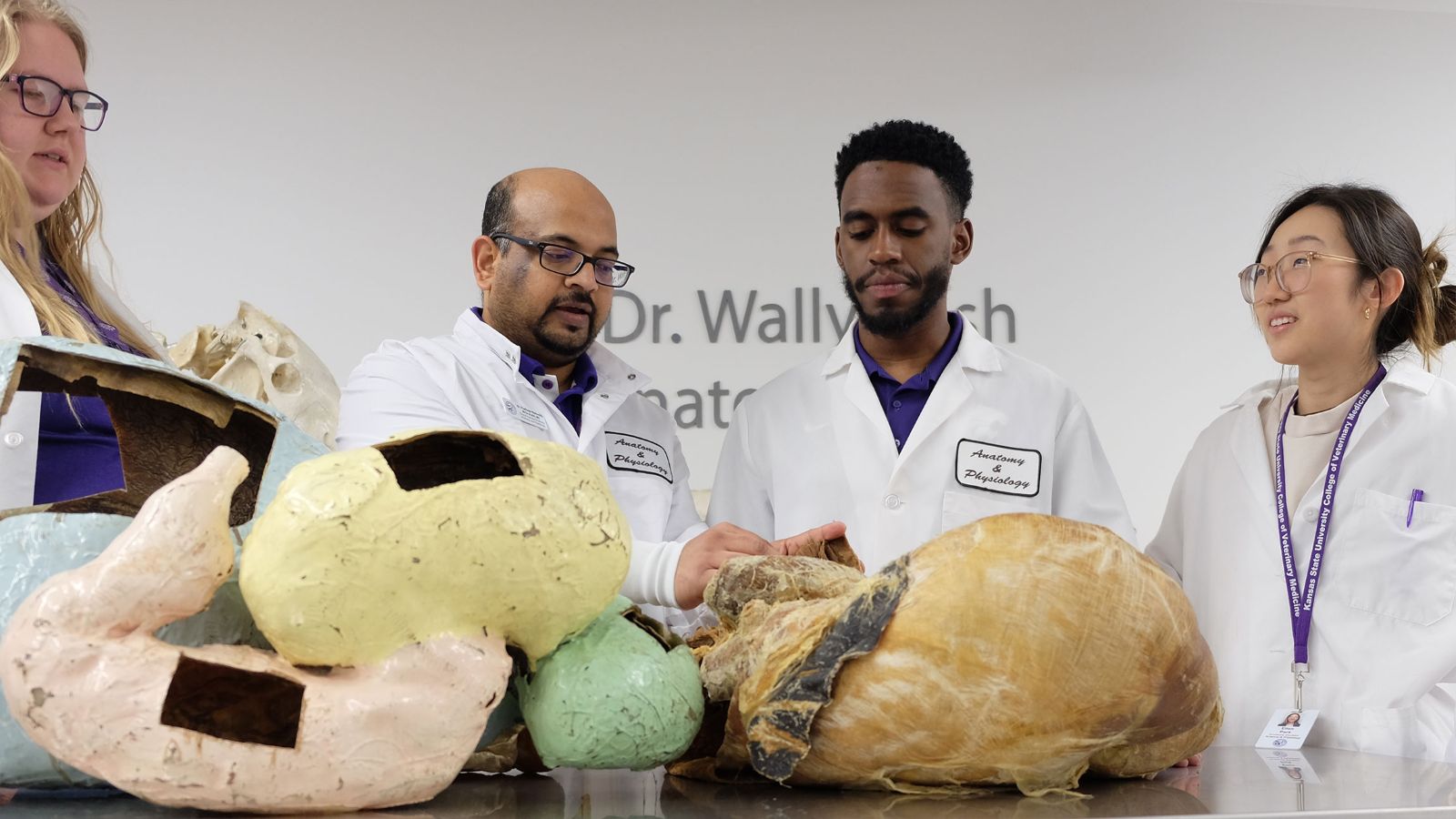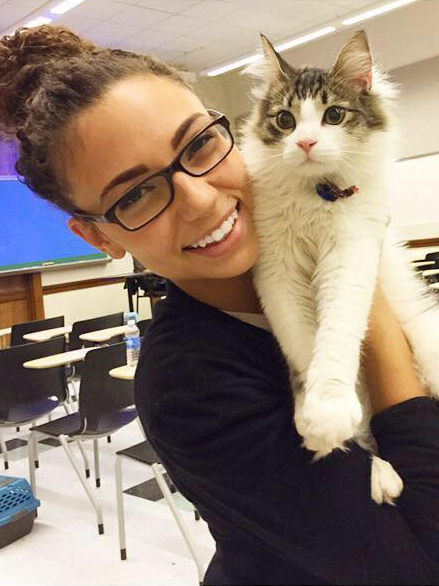
Veterinary Biomedical Science Master's Degree
This program will train graduate students with innovative basic, applied and clinical research that improves animal and human health.
Let us tell you more.
This degree is the only program in Kansas that offers a Master of Science in Veterinary Medical Science related to all aspects of animal health and wellbeing.
Multiple disciplines available
K-State has designed three subtracks to meet your individual needs and career goals.
- Anatomy and physiology prepares students for for academic positions in various health science-related institutions, as well as positions in industry and agribusiness.
- Pathobiology prepares students for careers in animal production or animal health in academic institutions, industries or in state and federal agencies.
- Clinical sciences prepares students for careers in clinical speciality or research and development.
Graduate faculty specialty areas
- Infectious Diseases, including Zoonotic Diseases and Transboundary Diseases
- Bacteriology
- Companion Animal Health
- Comparative Biomedical Sciences
- Cancer Biology and Treatment
- Epidemiology
- Food Animal Health and Management
- Food Safety and Security
- Immunology
- Nanotechnology
- Metabolic Diseases
- Physiological Sciences
- Stem Cell Biology
- Translational Medicine
The veterinary biomedical science degree (VBS) also prepares DVM graduate students to meet the demands of veterinary internships, residencies and careers.
Centers and Institutes
Our faculty's research activities and discovery strengths occur in several of K-State's 90 research centers and institutes, such as the:
- Beef Cattle Institute
- Center of Epithelial Research
- Center of Excellence for Emerging and Zoonotic Animal Diseases (CEEZAD)
- Center of Excellence for Translational and Comparative Oncology Research (CETCOR)
- Center for Outcomes Research and Education (CORE)
- Center of Excellence for Vector-Borne Diseases (CEVBD)
- Midwest Institute for Comparative Stem Cell Biology
Hear from VBS alumni

My work focused on the current challenges in controlling diseases in ruminant animals associated with three kinds of mycoplasma. I also learned more about the industry side of animal health.
Brittany W., 2019 graduate
My passions have always been in science, research and animal health/science. This program seemed perfect and I believe that I gained what I was looking for.
Jennafer D., 2021 graduate